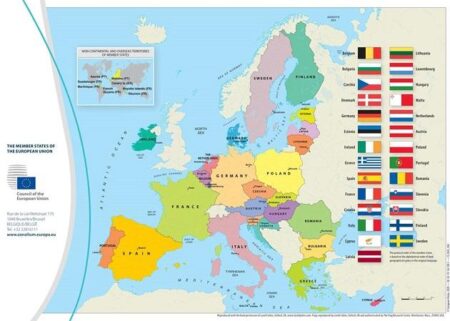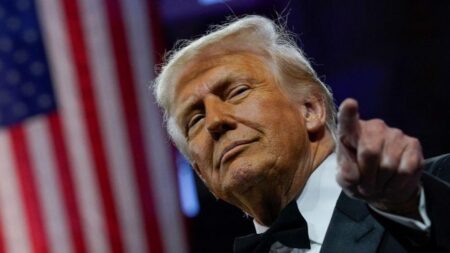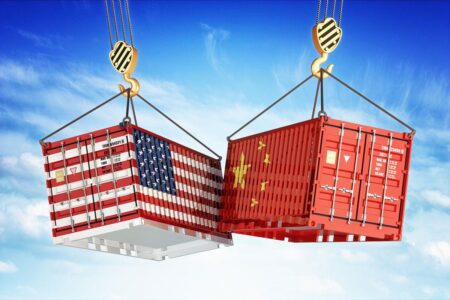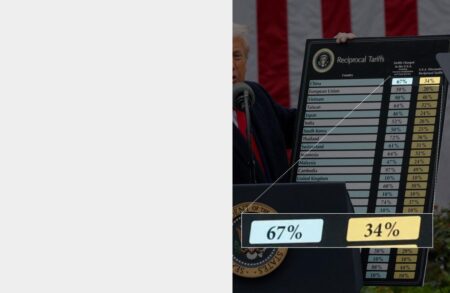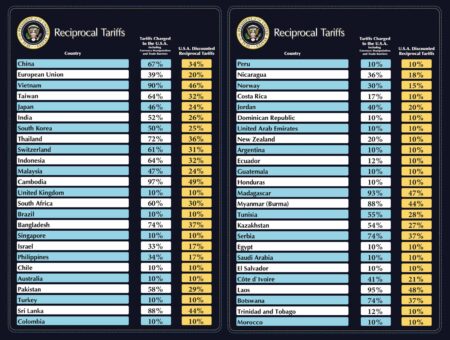In the latest edition of CNBC’s Inside India newsletter, analysts explore India’s strategic leverage in trade negotiations with the U.S. Amidst shifting global dynamics, India’s economic potential and market access could significantly influence outcomes.
Browsing: trade agreements
Japan has urged the United States to eliminate reciprocal tariffs, labeling them as regrettable. This request comes amid ongoing trade discussions aimed at strengthening bilateral economic ties and addressing trade imbalances.
In response to rising global trade tensions, EU countries are implementing protective tariffs to shield domestic industries. This move aims to bolster competitiveness and safeguard jobs, signaling a shift towards more aggressive trade defense strategies.
In response to rising tensions over trade, Deputy Prime Minister Richard Marles has affirmed that Australia will not collaborate with China to counter former President Donald Trump’s tariffs. Marles emphasized Australia’s commitment to maintaining its own trade policies.
Spain’s Prime Minister embarked on a diplomatic mission to China, aiming to bolster economic ties with the nation recently targeted by former President Trump’s tariffs. This visit underscores Spain’s strategic efforts to enhance trade relations in a shifting global landscape.
Mexico and Brazil have announced plans to enhance trade relations amid ongoing tariff disputes initiated during the Trump administration. Both nations aim to bolster economic cooperation, fostering growth and stability in the region.
In a significant development, Bessent has been appointed to spearhead trade negotiations with Japan, as reported by the Wall Street Journal. This move aims to strengthen economic ties and address key trade issues between the two nations.
New Zealand and Australia are actively engaging with international partners to strengthen free trade agreements, emphasizing the need for collaborative economic policies. This initiative aims to bolster regional stability and foster economic growth across nations.
Recent surveys by the Pew Research Center reveal shifting American attitudes towards trade. While views on trade with Canada and Mexico remain largely positive, concerns about the U.S.-China trade relationship have intensified, reflecting broader economic anxieties.
Japan’s former Defense Minister Shigeru Ishiba is advocating for a comprehensive agreement with the U.S. to address tariff issues. As tensions rise over trade policies, Ishiba emphasizes the need for collaboration to secure mutual economic interests.
In a move that could reshape transatlantic trade relations, former President Donald Trump has urged France to reconsider its trade partnerships, including the potential implications of the Mercosur deal. This call comes amid ongoing tensions over global trade policies.
Japan has positioned itself at the forefront of tariff negotiations with the U.S., seeking to bolster trade ties amid shifting global dynamics. The move underscores Tokyo’s proactive approach in addressing economic challenges and enhancing bilateral relations.
China has announced a 34% tariff on various U.S. imports in response to recent trade policies, escalating tensions between the two economic powerhouses. Analysts warn this move could further strain bilateral relations and impact global markets.
The US and Australia are engaged in a contentious beef trade dispute, marked by rising tariffs that threaten the meat industry. As both countries grapple with trade regulations, understanding the implications for farmers and consumers is crucial.
The United States Trade Representative’s reciprocal tariff calculations play a crucial role in shaping international trade relations. By assessing tariffs imposed by trading partners, the U.S. aims to foster fair competition and protect domestic industries.
In response to Trump’s tariffs, several affected countries are pursuing negotiations to mitigate trade impacts. Meanwhile, China emphasizes that trade wars yield no winners, urging for dialogue to resolve tensions and restore economic stability.
Leaders from Canada and Mexico convened to strategize their response to recent trade actions by the U.S. The discussions focused on strengthening economic ties and formulating a united front to address ongoing trade disputes and tariffs.
China is poised to increase its imports from India amid looming U.S. tariffs on Chinese goods. This strategic shift could bolster India’s economy and strengthen bilateral trade relations, offering a potential buffer against U.S. trade pressures.
Brazil and Vietnam have engaged in discussions focused on enhancing trade relations, particularly in the aviation and beef sectors. The dialogue comes ahead of the upcoming BRICS summit, highlighting a shared commitment to strengthen economic ties and cooperation.
China, Japan, and South Korea are set to enhance free trade cooperation amid regional tensions. Leaders from the three nations aim to reduce tariffs and streamline trade regulations, fostering economic growth and stability in East Asia.



